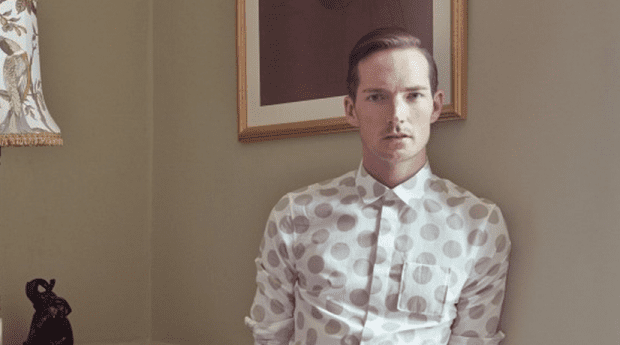The lead singer of The Feeling is not the type of guy to discuss feelings on Twitter.
The British band’s latest album, Boy Cried Wolf, begins with the ballad “Blue Murder,” which grapples with an increasingly noisy world where social media and self-promotion are requirements for most pop stars.
“I don’t understand these artists that can talk about themselves on Twitter all the time,” frontman Dan Gillespie-Sells tells Xtra. “What is left to write about when you’ve done all that? If I was really good at communicating, the rest of the time I probably wouldn’t be such a good songwriter.”
Released in the United Kingdom last fall and in North America in February, Boy Cried Wolf is the London band’s fourth studio album and their first since parting ways with major label Universal. The album marks a return to the elegant and anthemic pop-rock that made singer Gillespie-Sells, bassist Richard Jones, guitarist Kevin Jeremiah, keyboardist Ciaran Jeremiah and drummer Paul Stewart regulars on British radio after the release of their debut, Twelve Stops and Home, in 2006.
The Feeling continued the hot streak two years later with their second LP, Join with Us, but their third effort, Together We Were Made, failed to make as big a splash commercially.
Where did it all go wrong?
“If we were to have made this album when we were still signed to Universal, they would have loved it,” Gillespie-Sells, 35, tells Xtra over the phone from his home studio in London. “But this album could never have happened while we were signed to Universal because they wouldn’t let it happen. They would interfere and try and steer it. My natural reaction as an artist is against that. So I’d make the craziest stuff I possibly could just to annoy them.”
Rather than place all the blame on his old label for stifling the band’s creative freedom, Gillespie-Sells takes a more reflective view and chalks it up to a classic case of self-sabotage in the guise of youthful rebellion.
“It took a while to realize that’s what I was doing,” he says. “When you grow up, you know yourself a little bit better. You realize how you work when you’re under pressure and how you work when you’re not.”
Label pressure was not the only drama in Gillespie-Sells’s life at the time. Not long after Together We Were Made came out, he and his boyfriend of five years broke up. That inspired the ballad “You’ll See” — the creative spark that ignited Boy Cried Wolf.
Lead single “Rescue” and “I Just Do” are full of a similar yearning, but he is careful to note that the break-up songs came to him before and after the main event. In other words, his songwriting anticipated the relationship’s end.
“If you’re writing about things that are happening at the time, I think you’re too close to it to recognize it,” he explains.
Gillespie-Sells has since set up a studio for the band in a converted London pub that he also calls home. When Xtra calls, he is recording an actor friend’s vocals but is not yet sure what for. Since wrapping up a spring tour of the UK with The Feeling, he has kept busy with several projects, including a dance piece with choreographer Javier de Frutos and a musical for Sheffield’s Crucible Theatre.
Somewhere on his to-do list is achieving success in America. A hit single in the US would likely afford opportunities to collaborate with other artists as well as to work with bigger budgets.
“I’m torn because I’m not ambitious for fame,” Gillespie-Sells says. “But it would be nice to have a chance to work with people in America, and the way to do that would be to have some success in America. That’s how it works.”
One thing he will not compromise is his sexuality. When he met Elton John, the pop legend warned him that opening up in the press about his gayness sometimes comes with consequences.
“He said, ‘Do you want to make it public in America that you’re gay? Because it can have an effect.’ And I said, ‘Hell yeah!’ he recalls.
The memory leads into a rant about performers who dodge the issue of their sexuality publicly. While some pop stars are weary of being held up as role models, Gillespie-Sells is perfectly happy to take on the job.
“With this record, I’ve been doing a lot more gay press, and I’m actually really happy about it. We still live in a world where there’s a lot of work to be done around bullying and gay rights — not to mention women’s rights,” he says. “I’m happy to be a spokesperson, and I don’t really care if I bore people with it. And I don’t care if it becomes all about me being gay if I can provide one kid with a bit of hope who might cause themselves harm due to their sexuality.
“These actors that do it drive me crazy because I’m like, what is your life worth if you have to hide and not be true to yourself for the sake of where your career might take you?” he says. “It’s just so unhealthy and shameful. I wouldn’t hide who I am for any money in the world.”

 Why you can trust Xtra
Why you can trust Xtra


